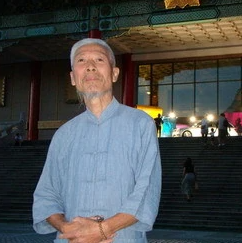Wang Duo

Wang Duo, scientific name Zhenchang, courtesy name Guangyu, alias Caizhen, born in 1938, is a native of Suzhou. His biological mother, Wu Xiang and Cen Shanqin, also likes to paint and freehand brushwork.
Mr. Wang has been fond of ancient times since he was young. He not only embraces the wealth of a family of qin and music, but also embraces the victory of Wu Zhong's mountains and rivers. His teacher was his uncle Wu Xiangquan. Mr. Wu Shizhaoji inherited family learning, and he also worshipped Mr. Wu Chunbai (Baptist Yang, Guanyue), the Taoist priest of Qingcheng, as his teacher, and he was able to pass it on. Wu Shiqin's style is smooth and vivid in the tranquility and tranquility, deep and mellow, timeless and transparent, elegant and free and easy, with a unique style of Yushan literati.
During middle school, Mr. Wang learned "Introduction to a Good Night", "Three Layers of Yangguan", "Three Alleys of Plum Blossoms", "Pu'an Mantra", "Ou Heron Forgets the Machine", "Pingsha Falling Wild Goose", "Falling Wild Goose", "Fisherman's Questions and Answers" with Master Wu during middle school ", "Xiaoxiang Shuiyun" and other eight songs. During his studies in the Department of Geophysics of Peking University, he often traveled to the Beijing Guqin Research Association, and tried to study "Pingsha" and "Daffodils" by Mr. Ganzhai, the predecessor of Yang Shibai, and Mr. Zha Fuxi's qin songs. After graduating from university, he traveled to his hometown for twenty-five years. After returning to his hometown, he followed Master Wu and learned to play seven songs including "Fisherman's Song", "Yangchun", "Scratching the Head and Asking the Sky". At that time, Master Wu said that Mr. Wang was quite spiritual. In the past ten years, he has composed more than 50 traditional qin pieces, involving more than ten kinds of qin scores. Among them, there are the written score "Jie Shi Tuning You Lan" (slow three strings), Taoist qin music such as "Caizhen Tour", "Kongtong Asking", "Zhuangzhou Dreaming Butterfly", "Wandering with Immortals", "Ji's Four Lanes" and It is different from "Cangjiang Night Rain" in "Canghai Longyin".
Similar artist
Involving musical instruments
Involved portfolio
Involved news
Popular artists
- 01 Zhang Xiuyan
- 02 Li Zhen
- 03 Jiang Ying
- 04 bump peng peng peng
- 05 Liu Qingyao
 渝公网安备 50010702504639号
渝公网安备 50010702504639号